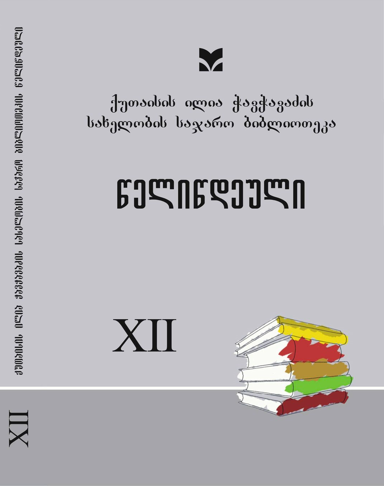Verb Templates Decorated with -ul / -il Suffixes in the Speech of Adjara Muhajirs (According to Published Texts)
DOI:
https://doi.org/10.48614/yk.12.2020.63-70Keywords:
The Speaking of the Muhajir Georgians, Adjarian Dialect, Verb FormationAbstract
In Georgian, one group of verbs in the present (as well as in the derivatives derived from it) is lined with -ul / -il formats. -Ul / -il are past tense-producing affixes used to produce a new verb stem/pattern. These types of verbs are known as “receiver verbs” in the scientific literature (A. Shanidze).
Verb forms derived from the receiver in the speech of Adjara Muhajirs, like Georgian kilos, gradually expand the area of distribution. Adjective forms are used much more often than the corresponding prefixed or non-prefixed forms. The research is based on the dialect texts placed in the Georgian dialect corpus (corpora. co).
Verbs of analytical type can be structurally divided into two groups: 1. The suffix -ul / -il is attached to the subject stem: kl-eb-ul-ob, tsn-ob-il-ob; 2. The suffix -ul / -il is attached to an indefinite root / base: Kadr-ul-ob, Tan-ul-ob.
In general, the distribution of the -ul and -il forms in the recipient verb forms is determined by the structure of the recipient: if the recipient has the -ul suffix, we also have the -ul suffix in the verb form based on it. Also: for the verb form with the suffix -il the starting point is the -il form receiver: gheb-ul-ob (receiver: take-ul-i), read-ulob (read-ul-i); Tsnob-il-ob (tsnob-il-i), shoot-il-obs (shot-il-i).
Interestingly, the above-mentioned rule of distribution of suffixes -ul / -il in receivers is not always followed by verb forms derived from the root of the receiver. Specifically, the recipient of the verb is -il suffix, and in the verb form derived from it, instead of -il suffix -ul is revealed: Tan-ul-ob (cf. Recipient: Atan-il-i): Khten-ul-ob (Mich ( F) Den-il-i).
The production of -il / -ul suffix verbs in the speech of Adjara Muhajirs mainly shows the regularities existing in the Georgian literary language and dialects. Despite the strong influence of the Turkish language, the principles of verb formwork are common here. The internal (immanent) laws of the Georgian language are still strong, which essentially determine the autonomy of the speech of Muhajir Georgians.




